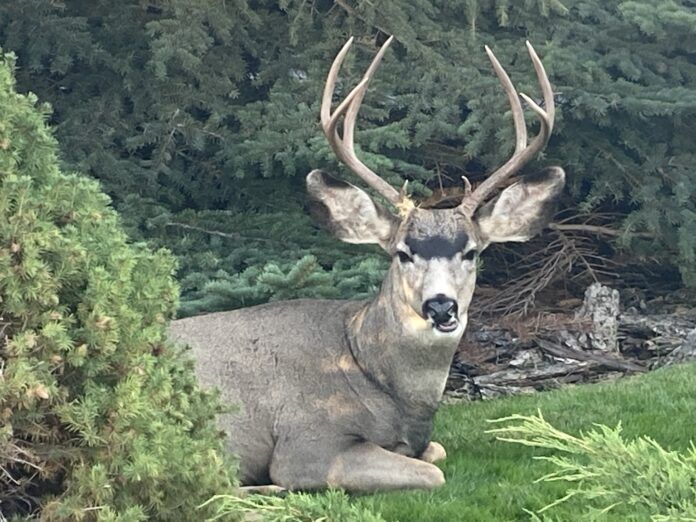The B.C. government is stepping up its fight against chronic wasting disease (CWD) by taking a closer look at urban deer populations in Cranbrook and Kimberley.
B.C. officials said this will include a partnership with both municipal governments and the Ktunaxa Nation.
“We have our urban who are very densely populated here. So, the concern is the proximity with animals that can be carrying the disease,” said Cranbrook Mayor Wayne Price.
“Our concern is the possibility of CWD moving from the perimeter into our local population.”
B.C. officials said wildlife experts will selectively sample and remove sample deer from both communities to understand the prevalence, if any, of CWD in the local herds.
This work is expected to start this fall and continue through winter.
Chronic wasting disease is a fatal infection that affects species in the cervid family, such as deer, elk, moose and caribou.
While there is no evidence that CWD can be transmitted to humans or pets, Health Canada officials said you should not consume any part of an infected animal.
Two deer south of Cranbrook were found with CWD in late January, which was the first time the illness has been reported in the province.
The B.C. government began testing through road-kill samples and targeted harvesting of 50 deer in the nearby area, with no positive cases found.
“This suggests that the disease has been detected early and is affecting a small proportion of the population,” said the B.C. government.
“Without active management, the disease will continue to spread and lead to irreversible impacts to cervid populations.”
The province is also taking steps to create a long-term management plan in collaboration with Indigenous Nations and other partners.
Mandatory CWD testing and restrictions on carcass transportation are still in place for all deer, elk and moose hunted or killed in vehicle collisions.
If you see any animals that show symptoms such as weight loss, drooling, poor co-ordination, stumbling, or generally sick with no obvious reason, you are asked to call the Report All Poachers and Polluters Line at 1 877 952-7277.
“Vigilance and continued efforts toward preventative measures and enhanced surveillance continue to be critical to informing management and limiting negative impacts on cervid populations and the communities that rely on them,” said the B.C. government.
Be the first to know! Don’t miss out on breaking news and daily updates in your area. Sign up to MyEastKootenayNow News Alerts.




